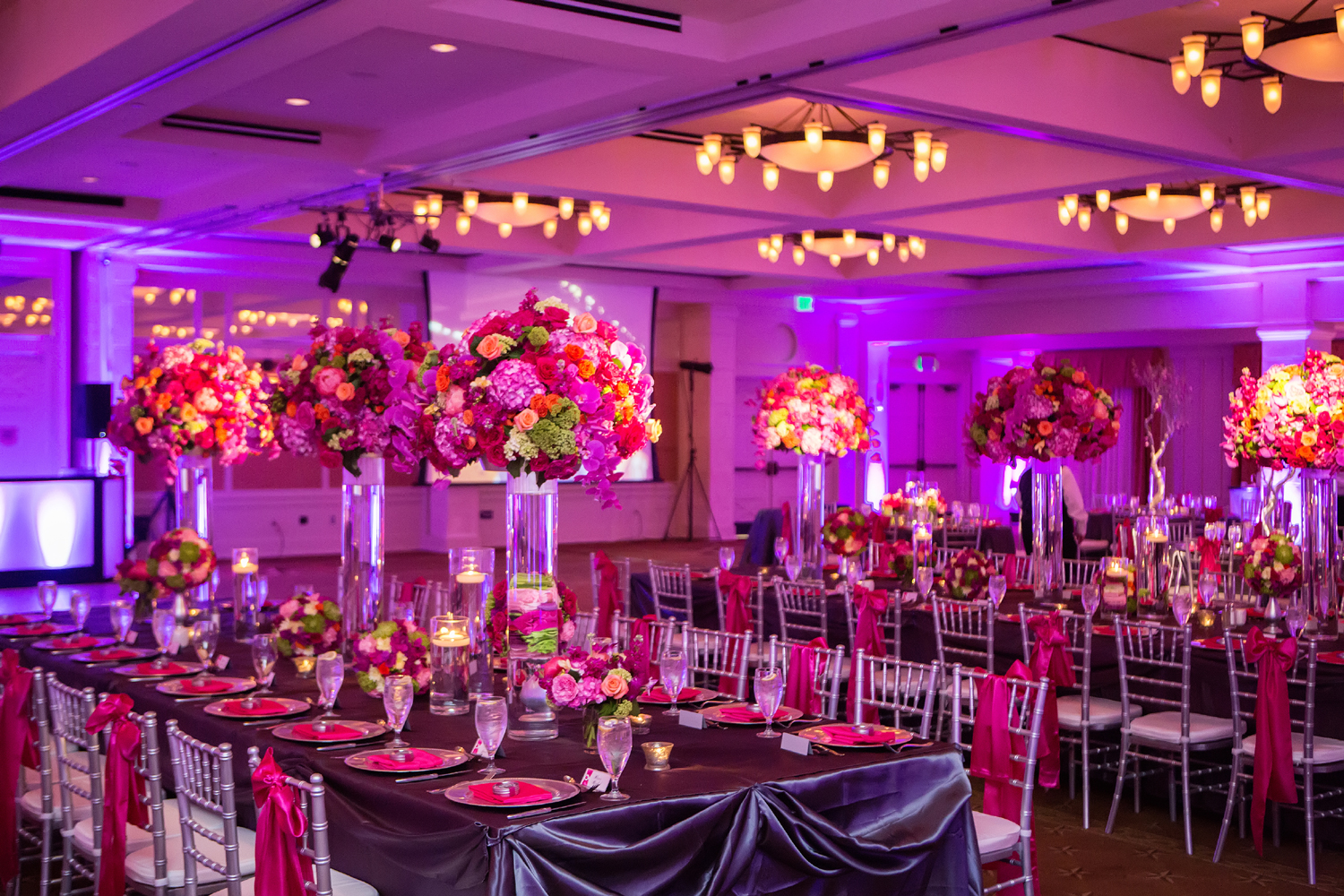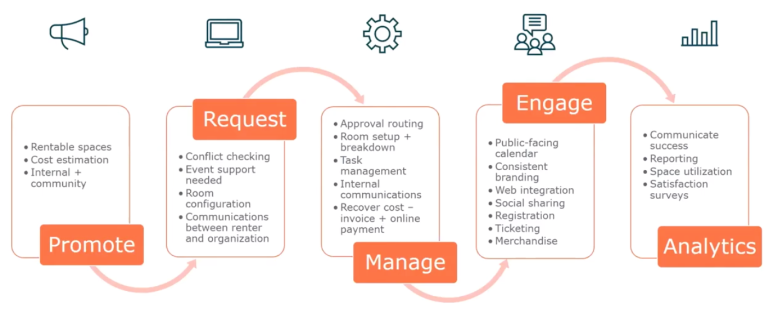All About Occasions Monitoring: Your Overview to Flawless Planning and Execution
Occasion monitoring is a careful procedure that calls for cautious preparation and implementation. It incorporates numerous elements, from defining objectives to collaborating logistics. Comprehending these principles is important for successful end results. Each aspect plays an essential function in developing an unforgettable experience for participants. Numerous forget essential details that can lead to difficulties. The succeeding areas will certainly check out these considerable parts in better deepness, exposing techniques to improve event success.
Recognizing the Basics of Event Monitoring
Event management includes a series of practices important for arranging effective events, whether they are corporate meetings, wedding celebrations, or large-scale events. At its core, occasion administration involves meticulous preparation, control, and execution to guarantee every aspect lines up with the occasion's function. Specialists in this field should recognize logistics, budgeting, venue selection, and supplier management. Effective communication is important, as it includes communicating with stakeholders, clients, and groups to develop a natural vision. Additionally, risk administration plays a significant role, as event supervisors should develop and anticipate potential challenges backup plans. They must also remain upgraded on market patterns and technological developments, which can enhance the participant experience. Eventually, a successful occasion is the outcome of thorough prep work, interest to detail, and the capacity to adjust to changing conditions, guaranteeing that the occasion meets its intended objectives while providing a remarkable experience for all participants.
Establishing Clear Purposes and Objectives
Setting clear purposes and objectives is vital for reliable occasion management. This procedure starts by specifying the occasion's function and identifying the target market, which lays the foundation for success. Additionally, developing quantifiable results warranties that the occasion can be evaluated versus its desired goals.
Define Occasion Purpose
Quality in purpose works as the foundation for effective event preparation. Defining the occasion's purpose assurances that all preparing efforts line up with a common objective. This involves verbalizing particular objectives, such as elevating understanding, cultivating networking, or celebrating success. Each function drives the decision-making procedure, from venue choice to program design. By developing a clear event purpose, coordinators can prioritize resources efficiently, ensuring that every element adds to the overarching objective. Furthermore, a well-defined purpose help in gauging success, as it gives benchmarks versus which end results can be evaluated. Eventually, a strong function not only guides the planning procedure however likewise enhances attendee engagement, creating an extra impactful experience for all participants involved.
Recognize Target Audience
Determining the target market is essential for achieving details purposes and objectives in occasion planning. Comprehending who the event is intended for permits planners to tailor content, marketing techniques, and total experiences to satisfy the target market's demands and preferences. By carrying out extensive research study, including market evaluation and psychographic profiling, event supervisors can identify the characteristics and habits of potential guests. This information aids in creating pertinent styles, choosing suitable places, and determining suitable tasks. Additionally, engaging with the target market via studies or emphasis teams can supply very useful understandings, ensuring that the event resonates with participants. Eventually, a distinct target audience boosts the significance and efficiency of an event, bring about greater fulfillment and involvement among participants.
Set Measurable End Results
Establishing measurable outcomes is vital for efficient occasion preparation, as it provides a clear framework for evaluating success. By setting specific purposes, event planners can establish what they intend to attain, whether it be attendee satisfaction, earnings targets, or brand name recognition. These purposes need to be quantified, allowing for uncomplicated assessment post-event. Coordinators may set an objective of bring in 500 participants or generating $20,000 in sponsorship revenue. Monitoring these metrics during and after the event makes it possible for organizers to evaluate efficiency and identify locations for renovation. Additionally, sharing these outcomes with stakeholders boosts transparency and builds trust fund, demonstrating responsibility in the planning process. Eventually, quantifiable outcomes act as a roadmap for continual renovation in future occasions.
Budgeting for Your Event
A well-structured spending plan is fundamental for the success of any occasion, despite its dimension or intricacy. It offers as a roadmap, leading planners with different economic dedications. Originally, event supervisors need to recognize all prospective expenses, including place, amusement, marketing, and food catering. Developing a breakdown helps stop oversights and assurances that every element is made up.

Checking expenses throughout the preparation procedure is critical. On a regular basis contrasting actual costs versus the budget plan enables prompt changes, guaranteeing that the event stays economically sensible and ultimately effective.
Choosing the Perfect Location
Selecting the excellent place is important to the success of any event. Elements such as capacity and format, area ease of access, and the facilities and services used must be thoroughly examined to ensure a seamless experience for attendees. A well-chosen venue not only enhances the occasion's ambience yet likewise sustains logistical demands.
Capability and Layout Considerations
When identifying the perfect location for an event, understanding capacity and design considerations is crucial for ensuring a successful experience. Occasion planners should assess the place's capability to suit the expected number of guests pleasantly. Congestion can cause a negative environment, while an overly sizable venue may reduce interaction and energy.
Additionally, the format of the area plays an important role in the occasion's circulation. A well-balanced plan promotes activity, communication, and gain access to to key locations such as phases, toilets, and providing stations. Planners must consider the purpose of the occasion-- whether it requires a formal seating arrangement, open area for mingling, or specialized areas for activities. Stabilizing ability and layout is key to developing an inviting and practical event setting.
Location Accessibility Aspects
Accessibility navigate here aspects play a considerable role in choosing the excellent location for an event. The location needs to be comfortably situated, ideally near mass transit and major highways, guaranteeing simple accessibility for all attendees. Adequate auto parking options are important, fitting both vehicles and any necessary transport solutions. In addition, the place has to conform with ease of access criteria, supplying functions such as ramps, lifts, and accessible washrooms for individuals with disabilities. Consideration of surrounding infrastructure, including dining establishments and resorts, can also improve the overall experience for guests traveling from out of community. Inevitably, a well-chosen location that focuses on availability adds to a seamless occasion, motivating greater attendance and satisfaction among participants.

Services and Services Provided
Solutions and facilities supplied by a place can significantly impact the success of an occasion. A fully equipped place gives necessary centers such as audiovisual tools, Wi-Fi accessibility, and ample seating arrangements, making certain a seamless experience for participants. Providing options, consisting of on-site cooking areas and varied menu options, can enhance guest complete satisfaction and simplify logistics. Additionally, venues supplying assistance solutions, like event planners or technical support, help alleviate the preparation burden on organizers. Accessibility attributes, such as auto parking schedule and holiday accommodations for people with impairments, are likewise vital for inclusivity. Inevitably, selecting a location that straightens with the event's needs and provides extensive services and solutions can add significantly to a reliable and memorable event.
Creating a Detailed Event Timeline
A well-structured event timeline is vital for the successful execution of any type of celebration, guaranteeing that every detail is accounted for and that tasks are finished on routine. The timeline offers as a roadmap, directing occasion organizers through the various phases of prep work, from initial concept to the last implementation.
To develop a reliable timeline, organizers ought to start by detailing all jobs, consisting of place selection, catering plans, and enjoyment bookings - Charlotte Event Companies. Each task should have a marked target date, allowing for appropriate time to attend to possible read here concerns. It is vital to prioritize jobs based on their urgency and interdependencies
Furthermore, the timeline should consist of essential landmarks and checkpoints to keep an eye on development. Routinely reviewing and readjusting the timeline as necessary aids to fit unanticipated changes. By sticking to an in-depth occasion timeline, coordinators can ensure a smooth circulation of activities, eventually resulting in a effective and unforgettable occasion.

Working With Logistics and Vendors
Reliable control of logistics and vendors is crucial for guaranteeing that an occasion runs smoothly and fulfills its purposes. This procedure starts with selecting dependable suppliers who line up with the event's vision, whether for food catering, audiovisual needs, or style. Establishing clear interaction channels is important; event supervisors must express assumptions and timelines to each vendor.
Logistical considerations include place format, transport arrangements, and tools configuration. A detailed list can help track the delivery and installment of necessary materials. It is additionally essential to conduct pre-event conferences with suppliers to verify functions and duties, decreasing the possibility for miscommunication on the occasion day.
Throughout the event, continuous surveillance of logistics warranties adherence to the timeline and enables for instant problem-solving. Inevitably, efficient control adds considerably to the overall success of the occasion, helping with a smooth experience for all participants involved.
Evaluating Event Success and Event Comments
Evaluating occasion success may appear simple, it entails a comprehensive analysis of different variables that add to general results. Event planners should begin by establishing clear goals before the occasion, as these benchmarks work as a foundation for assessment. Secret performance indications (KPIs) such as participation prices, individual interaction, and budget plan adherence are important metrics to take into account.
Collecting feedback is equally important, as it gives understandings from attendees and stakeholders. Studies, interviews, and social media sites surveillance can reveal important viewpoints on various aspects of the occasion, including content quality and logistical effectiveness - Charlotte Event Companies. Evaluating this responses helps determine strengths and locations for improvement
Ultimately, a complete analysis not only gauges success yet additionally informs future events. By using lessons discovered, event organizers can enhance their strategies, resulting in increasingly successful and impactful gatherings in the future.
Often Asked Concerns
Just how Do I Deal With Last-Minute Modifications or Emergency Situations During an Event?
To manage last-minute adjustments discover this or emergency situations throughout an event, one have to stay calm, quickly evaluate the scenario, interact efficiently with the team, and execute contingency strategies while focusing on visitor experience and security.
What Are the very best Practices for Event Advertising and Promo?
Efficient event advertising and promotion entail a clear approach, using social media sites, engaging material, targeted e-mail campaigns, collaborations with influencers, and consistent branding. Furthermore, leveraging analytics can maximize outreach efforts and enhance audience engagement.
Exactly How Can I Guarantee Ease Of Access for All Event Attendees?
Making sure accessibility for all occasion attendees involves giving wheelchair ramps, easily accessible seating, indication language interpreters, clear signs, and materials in multiple styles. Routinely speaking with availability experts can enhance the overall experience for every person entailed.
What Should I Do if My Occasion Exceeds the Budget?
If an event surpasses its budget, the organizer needs to re-evaluate expenses, focus on essential aspects, negotiate with suppliers, seek additional funding sources, or consider downsizing certain aspects to keep economic control and warranty general success.
How Do I Select the Right Technology for My Event?
Selecting the right innovation for an occasion entails reviewing audience needs, examining readily available options, taking into consideration budget restrictions, and ensuring compatibility with existing systems. Prioritizing individual experience and dependability can considerably boost overall event success.
At its core, event management entails precise planning, control, and implementation to ensure every aspect aligns with the occasion's objective. When establishing the perfect place for an event, comprehending capability and layout factors to consider is vital for ensuring an effective experience. Event coordinators must evaluate the place's ability to accommodate the expected number of visitors pleasantly. Access factors play a significant role in selecting the excellent venue for an event. Occasion organizers should start by establishing clear goals prior to the event, as these benchmarks offer as a foundation for evaluation.